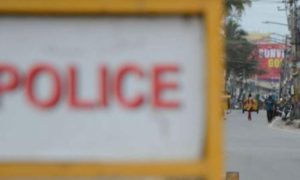House Republican lawmaker, Michael McCaul, released the third instalment in his investigation into the origins of the virus and the missteps by China in alerting the world to the risks of the pandemic.
Washington: A United States Republican lawmaker`s report investigating the origins of COVID-19 released on Monday has concluded that the pandemic outbreak stemmed from a genetically modified virus that leaked from China’s Wuhan Institute of Virology, first detected in December 2019. House Republican lawmaker, Rep. Michael McCaul (R-Texas), the ranking member of the House Foreign Affairs Committee, released the third instalment in his investigation into the origins of the virus and the missteps by China in alerting the world to the risks of the pandemic, reported The Hill.
McCaul, in statements alongside the release of the report, has called for Congress to pass legislation sanctioning scientists at the Wuhan lab and Chinese Communist Party officials who were determined to have obstructed efforts to respond to the pandemic quickly and effectively.
The GOP investigation parallels efforts by the Biden administration and the international community to determine the origins of the pandemic outbreak, which has killed more than 4.2 million people across the world, infected nearly 200 million and upended global stability.
The Republican report is based on open-source material and draws conclusions from circumstantial reporting, also raises concern that the lab was conducting “gain of function” research, controversial medical research where scientists genetically modify a bacteria or virus to make it more infectious in an effort to study better preventative measures, in an unsafe environment, reported The Hill.
“We know gain-of-function research was happening at the WIV and we know it was being done in unsafe conditions,” McCaul said.
National security experts also raised the concern that the US must discipline China for failing to quickly and cooperatively alert the international community to the virus outbreak and its ongoing obstruction into the investigation into the origins of COVID-19.
“The Biden administration has already — working through the World Health Organisation (WHO) and with the G-7 and with other countries — used diplomacy and tried to urge the Chinese to cooperate. They`ve given us their answer, their answer is no,” said Anthony Ruggiero, a senior fellow at the Foundation for Defense of Democracies.
McCaul also called on the House Foreign Affairs Committee to subpoena Peter Daszak, an American scientist who has come under scrutiny for his connection with the Wuhan lab and involvement in publishing an open letter in February 2020 that rejected the lab theory as a xenophobic distraction from the pandemic response. The letter, which was published in the Lancet medical journal, has since come under criticism as an attempt to divert attention from China`s responsibility for the virus outbreak.
“Now is the time to use all of the tools the US government has to continue to root out the full truth of how this virus came to be,” McCaul said.
The lab leak theory is the idea that the virus emerged from the Wuhan scientific lab either due to a series of missteps and lax safety procedures or Chinese government and military tampering. The Chinese government and Wuhan lab scientists have dismissed these allegations and maintain that the first cases likely emerged from animal-to-human transmission at a wet market in the city of Wuhan.
Leaked State Department cables from 2018 documented that American diplomats raised concern about safety and management procedures at the Wuhan lab that did not raise the level of need for the lab`s status as a BSL-4, the highest level of international bioresearch safety. The cables were first reported by The Washington Post in April 2020.
The Republican report adds to this by raising concern over maintenance and renovation taking place at the Wuhan Institute of Virology and the adjacent lab, the Wuhan National Biosafety Laboratory, related to its hazardous waste treatment system and air conditioning systems while carrying out research on coronaviruses. Such instances were taking place in the months preceding the first known cases of COVID-19, the report stated.





































